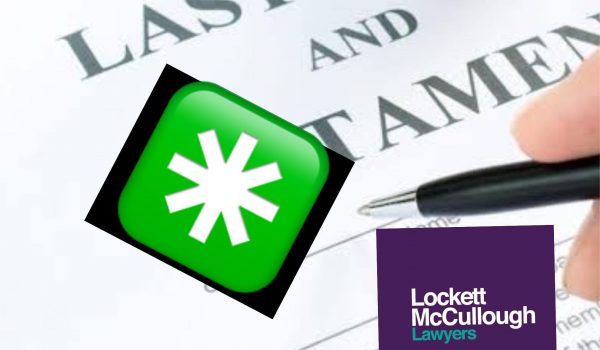

Many Australians work hard to to build their superannuation funds to assist them with a comfortable lifestyle during retirement or to pass to their family members upon their death.
As superannuation is generally not accessible for working Australians until retirement age, it is easily forgotten as an important consideration in estate planning.
So where does your superannuation go when you pass away?
There is a common misconception that your superannuation will automatically form part of your Estate when you pass away. Accordingly, many people do not consider making arrangements with their superannuation fund to make sure that their Superannuation passes in accordance with their wishes and is received by their intended beneficiaries.
Every superannuation fund is different insofar as whether the trustee of the fund will permit members to make a binding death benefit nomination, a general nomination, automatically pay superannuation into the deceased’s estate or refuse to pay certain beneficiaries at all (some Government superannuation funds).
It is a crucial step in your estate planning process to check with your superannuation fund and see what type of nomination processes are available and ensure that you do what is required to ensure that your superannuation does pass in accordance with your wishes.
This is particularly important where you are part of a blended family, have had more than one marriage or have estranged children, as the ultimate beneficiary of your superannuation may not be as clear cut as may be the case in nuclear families.
Is superannuation distributed according to your Will?
As suggested above, your superannuation is not automatically distributed in accordance with your Will and does not automatically form part of your estate. The reality is that the distribution of your superannuation upon your death is governed by the agreement that you entered into with the trustees of your superannuation fund prior to your death and the relevant legislation. The exception to this is where you have nominated your estate as the ultimate beneficiary to receive your superannuation upon your death.
It is therefore imperative that you make a binding death benefit nomination under your superannuation agreement. This information should be shown on the annual report you receive from your superannuation fund.
If you are considering changing superannuation funds, it is important to check the succession planning options available with your new fund. Just because your previous superannuation fund may have allowed you to make a binding death benefit nomination does not mean that your new fund will allow the same thing and indeed, may have different options and requirements.
What type of nominations can you make?
It is not a simple matter of “nominating a beneficiary” and then not worrying about it any further. Each superannuation fund will have different options available and will require you to be reviewing or potentially updating your nomination every few years to ensure that the nomination remains binding. The types of nominations include the following:
A binding death benefit nomination may be either lapsing or non-lapsing:
Most superannuation funds will offer a binding death benefit nomination, however, it is dependent on the rules of that particular fund. The benefit of correctly preparing a binding nomination is that it provides certainty that the nomination will not be challenged. You may need professional assistance to understand what type of nomination is provided by your fund.
Who can receive my superannuation benefits upon my death?
The Superannuation Industry (Supervision) Act (SIS Act) outlines who may receive payment of superannuation on the death of a member of the fund. Under the SIS Act, only a dependent defined under the SIS Act or your estate can receive your superannuation on your death.
“Dependent” is defined in the SIS Act to include a spouse, de-facto spouse, biological or adopted children and any person who is financially dependent on you.
This is particularly important to note if you have a Government superannuation fund, as often they will only pay to spouses and not to children or other beneficiaries.
What if I have a Self-Managed Super Fund (SMSF)?
It is becoming increasingly more common for Australians to roll their superannuation into a Self-Managed Superannuation Fund (SMSF).
As with normal industry superannuation funds, it is important to ensure that each member of the SMSF makes a binding death benefit nomination and that the nominations are kept in the superannuation binder held by the trustees of the SMSF.
When a member wishes to update their nomination, they will need to sign a new one and revoke their previous nomination.
If you have an SMSF but have not made a binding death benefit nomination, speak with your accountant or solicitor so that they can prepare one for you.
Contact us
Lockett McCullough Lawyers has extensive experience in estate planning strategies that ensure your best interests are looked after and your wishes are clearly set out in your Will.
Please contact us if you would like to seek professional advice when making your Will so that you can ensure that your superannuation is properly provided for.
* Please note that this information is general information only and does not constitute financial advice. We recommend that you seek specific information from your superannuation fund on the types of nominations available and obtain legal and financial advice which is specific to your personal circumstances.